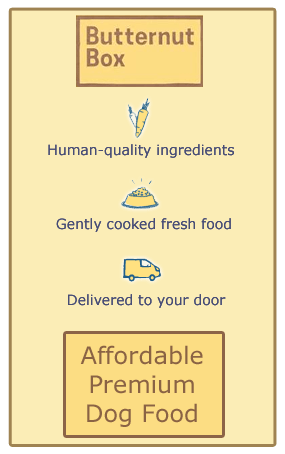As dog owners, we often find ourselves concerned about our furry companions’ wellbeing, especially when they display signs of anxiety or experience gastrointestinal issues.
While there are numerous approaches to address these concerns, one of the most impactful yet sometimes overlooked aspects is diet.
What our dogs consume can significantly influence both their mental health and digestive functions.
Understanding Anxiety in Dogs
Just like humans, dogs can experience anxiety for various reasons, including separation from their owners, noise phobia, or changes in their environment.
The symptoms may manifest as excessive barking, destructive behavior, or even withdrawal.
Chronic anxiety can have severe repercussions on a dog’s overall health, leading to stress-induced issues, including gastrointestinal upset.
The gut-brain axis is a well-established concept in human medicine, and evidence is emerging that this connection can also apply to dogs.
When dogs are anxious, their stress responses can disrupt their digestive functions, leading to conditions like diarrhea, vomiting, or loss of appetite.
Therefore, it becomes essential to explore how a balanced diet can help mitigate anxiety-related gastrointestinal issues.
Nutritional Elements That Help
1. High-Quality Proteins:
Proteins are fundamental for maintaining a dog’s energy levels and overall health.
Lean meats, fish, and eggs are excellent sources of protein that can also help in repairing damaged tissues.
Proteins are crucial for the synthesis of neurotransmitters like serotonin, which plays a significant role in regulating mood and emotional behavior.
2. Omega-3 Fatty Acids:
Found in fish oils and certain plant-based oils like flaxseed, Omega-3 fatty acids have anti-inflammatory properties and are known to have a calming effect on the brain.
Studies suggest that incorporating Omega-3s into a dog’s diet can reduce symptoms of anxiety and improve overall mental wellbeing.
3. Fiber:
A diet rich in fiber can help maintain gastrointestinal health, ensuring regular bowel movements and reducing the likelihood of constipation or diarrhea.
Ingredients like pumpkin, sweet potatoes, and oats can provide the necessary fiber while being easy on a dog’s stomach.
Fiber also aids in maintaining gut health by feeding beneficial gut bacteria that can impact mood and behavior.
4. Probiotics and Prebiotics:
The gut microbiome plays a critical role in both digestion and mental health.
Probiotics (live beneficial bacteria) and prebiotics (substances that feed these bacteria) can help restore and maintain a healthy gut flora.
Supplementing your dog’s diet with probiotic-rich foods, such as yogurt or specialized dog probiotics, can enhance digestive health and potentially alleviate anxiety.
5. Balanced Carbohydrates:
Carbohydrates should also be a part of a dog’s diet—as they provide essential energy and nutrients.
Opting for complex carbohydrates like brown rice and quinoa can prevent fluctuations in blood sugar levels that may exacerbate anxiety.
6. L-Theanine:
This amino acid, found in green tea, is known for its calming properties.
Some specialized dog foods or supplements include L-Theanine to help reduce anxiety levels without sedation, allowing dogs to remain alert while feeling more relaxed.
Holistic Approach
When addressing anxiety and gastrointestinal upset in dogs, it’s essential to take a holistic approach that includes environmental enrichment and regular exercise.
Engaging your dog in physical activities can promote the release of endorphins, helping combat anxiety and promoting a healthy gut.
Moreover, introducing dietary changes should be done gradually to prevent further gastrointestinal distress.
Consult your veterinarian before making significant alterations to your dog’s diet or introducing supplements, especially if your furry friend has pre-existing health issues.
Conclusion
While anxiety and gastrointestinal upset in dogs can be challenging for both pets and their owners, understanding the profound impact of diet can pave the way for effective solutions.
By focusing on a balanced and nutritious diet, dog owners can significantly contribute to their furry friends’ mental health and digestive well-being.
A mindful approach to nutrition not only supports better behavior but also enhances the overall quality of life for our beloved companions.









